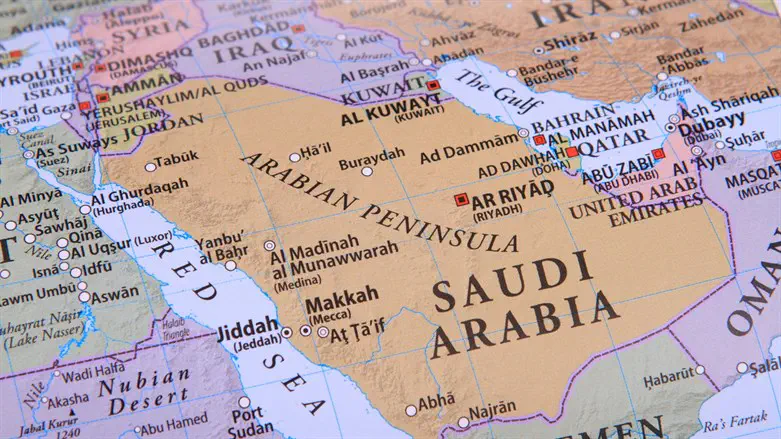
It's been a tumultuous uphill battle for Prime Minister Benjamin Netanyahu as he sets out on an ambitious diplomatic goal that can help bring Israel and Saudi Arabia closer to signing a peace accord. As talks for more diplomacy start to surface, the outcomes could help reshape the Middle East and Israel's position among the international community.
A decade ago, the conventional wisdom was that Israel could not make peace with most Arab countries until a deal was reached with the Palestinian Arabs. Many experts on the left gleefully mocked Donald Trump's effort to forge a Sunni Arab-Israeli alliance.
But then the impossible happened.
The Abraham Accords helped bring Israel closer to peace through agreements with the United Arab Emirates, Bahrain, and Morocco. Then in January 2021, Sudan joined the accords, leading Netanyahu to expand the agreement to Saudi Arabia alongside Egypt.
With talks underway, and the possibilities growing stronger in favor of Israel and its citizens, the outcomes could help reshape the political dynamic of the Middle East, boosting international trade, commerce, and economic prosperity.
In a December 2022 interview with the Dubai-based international news channel Al-Arabiya, Netanyahu said, "I believe a peace accord with Saudi Arabia will serve two purposes. It will be a huge step towards comprehensive peace between Israel and the Arab world, which will change our region in ways we can't even imagine, and I think it will help, eventually, to achieve peace between Israel and the Palestinians."
Western powerhouses have shared that Saudi Arabia's attempt to court Israel into the peace deals would inevitably bring the State closer to becoming part of the Middle East family. Still, the benefits will not be enjoyed by the majority of the people.
Saudi Crown Prince Mohammed Bin Salman's interview with Atlantic Magazine again highlighted the critical role peace agreements among Middle Eastern states play in the bigger picture and how diplomacy can resolve recurring issues from the past.
When Mohammed Bin Salman was confronted with the question of whether Saudi Arabia intends to follow the same route as other Arab countries by establishing more prominent relations with Israel, he replied, "We look to them as a potential ally, with many interests that we can pursue together." In the same breath, however, he replied that Israel must first solve the ongoing grievances with the Palestinian Arabs. Nevertheless, many experts believe the Saudis are tired of Palestinian Arab intransigence and are merely paying lip service to their citizens and the wider Arab world.
The big unspoken issue is the Sunni Arab fear of Shia Iran. With the civil war in Syria heightening existing divides, many Sunnis in the region now see Iran as their number one threat.
With a growing Sunni-Israel breakthrough diplomacy, ongoing peace agreements with Palestinian Arabs could become more likely in the coming years as Netanyahu gears himself for how history sees his term in office.
The developing outcomes are beneficial for the Jewish State and could fast-forward Israel's influence on economic trade between neighboring Middle Eastern countries.
Seeing that Israel has one of the world's most advanced technology sectors, the United Arab Emirates (UAE) and Bahrain have continued to openly trade with Israel, bringing good business for all involved members.
Lessening its isolation from the rest of the Middle East and the world, Prime Minister Netanyahu has described that opening the skies over Saudi Arabia and Jordan has allowed planes and Israeli aircraft to fly more freely across the region and created a through path for residents going eastward.
Since the diplomatic efforts started between Israel and the Gulf States, Chevron, the world's second-largest energy company, has entered into the State and has internalized the change that has taken place between Israel and the Arab world over recent years. With increased business activity, especially in the natural gas extraction industry, the country and the people of Israel will benefit from the progressive economic diversity.
These efforts have come with many headaches and headwinds that have put Israel, Saudi Arabia, and the Gulf Countries under international scrutiny. Despite the unknowns, certainty, the growing political initiatives shared among the neighboring states would help make peace agreements with the Palestinian Authority more likely, as it will also benefit from new foreign policy arrangements.
While there may still be a lot of work to be done, and with Netanyahu increasingly looking to "repair" Israel's international reputation among the Arab world, the coming months could deliver a whirlwind of progressive change for Israel and the entire region.
Jacob Wolinsky is the founder and CEO of ValueWalk - a well-known financial media service. Before launching ValueWalk, he was an equity analyst at a micro-cap-focused private equity firm and then moved to a small/mid-cap value-focused research shop and worked in business development for hedge funds. He lives with his family in Passaic, New Jersey